Liquidity Comparison Calculator
Compare Your Investment Liquidity
Calculate how much more liquid your investment would be with security tokens versus traditional securities based on key metrics from the article.
Imagine buying a share of a Manhattan skyscraper for $500 instead of $5 million. That’s not science fiction-it’s what security tokens make possible. Unlike traditional stocks or bonds, security tokens are digital assets built on blockchain that represent ownership in real-world assets like real estate, private equity, or even art. But the biggest game-changer isn’t just ownership-it’s liquidity. Traditional securities lock your money in for months or years. Security tokens let you trade them anytime, anywhere, with just a few clicks. Here’s how they’re rewriting the rules.
What Makes Liquidity Different?
Liquidity means how easily you can buy or sell an asset without changing its price. In traditional markets, liquidity is limited by time, cost, and access. Stock exchanges open only 6.5 hours a day, five days a week. Selling a private company share? Good luck-there’s no public market. You need a broker, a transfer agent, paperwork, and weeks to settle. Even then, you’re often stuck waiting for a buyer who meets your price. Security tokens flip this. Because they run on blockchain, they trade 24/7, globally, and settle in seconds. Smart contracts handle everything: verifying who owns what, enforcing investor eligibility, and transferring ownership automatically. No middlemen. No delays. No manual reconciliation. A $10 million commercial building can be split into 10,000 tokens. Each one is worth $1,000. You buy one. You sell it later. Done.Trading Hours: Always On vs. Office Hours
Traditional securities are bound by exchange schedules. New York Stock Exchange? Closed on weekends and holidays. London? Same. If you miss the trading window, you wait. And if you’re in Tokyo or Lagos? You’re either asleep or paying a premium to trade during U.S. hours. Security tokens don’t care about time zones. Platforms like Securitize, Polymarket, or tZero operate around the clock. A Singaporean investor can sell a token at 3 a.m. local time. A German trader can buy it five minutes later. The blockchain doesn’t sleep. This constant availability increases trading volume and narrows bid-ask spreads-two key signs of strong liquidity.Fractional Ownership: Breaking the $100,000 Barrier
Traditional private equity or real estate deals require deep pockets. You need $500,000 to $1 million just to get in the door. That’s why only institutions and ultra-wealthy individuals dominate these markets. Security tokens remove that barrier. A $5 million apartment can be divided into 5,000 tokens. Now, anyone with $1,000 can own a slice. This opens the door to millions of new investors who were previously locked out. And more buyers mean more sellers. More sellers mean more trades. More trades mean higher liquidity. Real-world data backs this up. In tokenized real estate markets, properties listed on decentralized platforms showed 8.62 percentage points higher liquidity than those kept off-chain. Even after adjusting for market conditions, the advantage remained at 3.76 percentage points. That’s not a small edge-it’s a structural shift.Settlement Speed: Days to Seconds
In traditional markets, buying a stock takes two business days to settle (T+2). Real estate deals? Months. Even simple bond trades can take days due to manual confirmations between banks, brokers, and clearinghouses. Security tokens settle in minutes-or sometimes seconds. When you buy a token, the smart contract instantly updates ownership on the blockchain. No waiting for a transfer agent to verify signatures. No reconciling ledgers. No failed payments because someone forgot to send a wire. This speed reduces counterparty risk and increases confidence. Traders know their assets are theirs immediately. That encourages more frequent trading, which boosts liquidity. In contrast, slow settlement in traditional markets discourages turnover. Why sell if you won’t get your cash for days?
Costs: Cutting Out the Middlemen
Traditional securities come with a long list of fees: broker commissions, transfer agent fees, custody fees, regulatory filing fees, clearinghouse charges. Add it all up, and you’re paying 1-3% per trade on average for illiquid assets. Security tokens cut most of these out. Smart contracts automate compliance, ownership tracking, and transfers. No broker needed. No transfer agent. No manual reconciliation. Platforms still charge small service fees-usually 0.5-1.5%-but that’s still far less than traditional costs. And because there’s no need for paper records or physical storage, overhead drops even further. One real estate tokenization platform reported that its users saved an average of $12,000 per transaction compared to traditional real estate sales. That’s not a rounding error-it’s life-changing for small investors.Global Access: No Borders, No Barriers
Traditional securities are often restricted by geography. U.S. investors can’t buy shares in many European private companies. Chinese investors face capital controls. African retail investors have almost no access to global private markets. Security tokens, when compliant, bypass these limits. As long as you pass KYC (Know Your Customer) checks and the asset issuer allows your jurisdiction, you can trade. A Kenyan teacher can invest in a California solar farm. A Polish engineer can own a piece of a Tokyo apartment building. This global pool of buyers and sellers dramatically increases liquidity potential.Challenges: It’s Not Perfect Yet
Don’t get it twisted-security tokens aren’t magic. They have real problems. First, regulation is still a patchwork. The U.S. treats them as securities. The EU has MiCA. Switzerland is clear. But in Nigeria or Brazil? Unclear. That uncertainty scares off big institutions. Second, gas fees on Ethereum can spike. During high demand, a simple token transfer might cost $50. That eats into profits on small trades. Some platforms now use Layer 2 networks like Polygon or private blockchains to keep fees low, but not all do. Third, user experience is still clunky. You need a wallet. You need to understand private keys. You need to know how to send tokens safely. Most people still find this intimidating. And fourth, liquidity isn’t guaranteed just because the tech exists. A tokenized asset needs buyers. If no one wants to trade it, it’s still illiquid. Early-stage tokenized assets often see low volume until trust builds.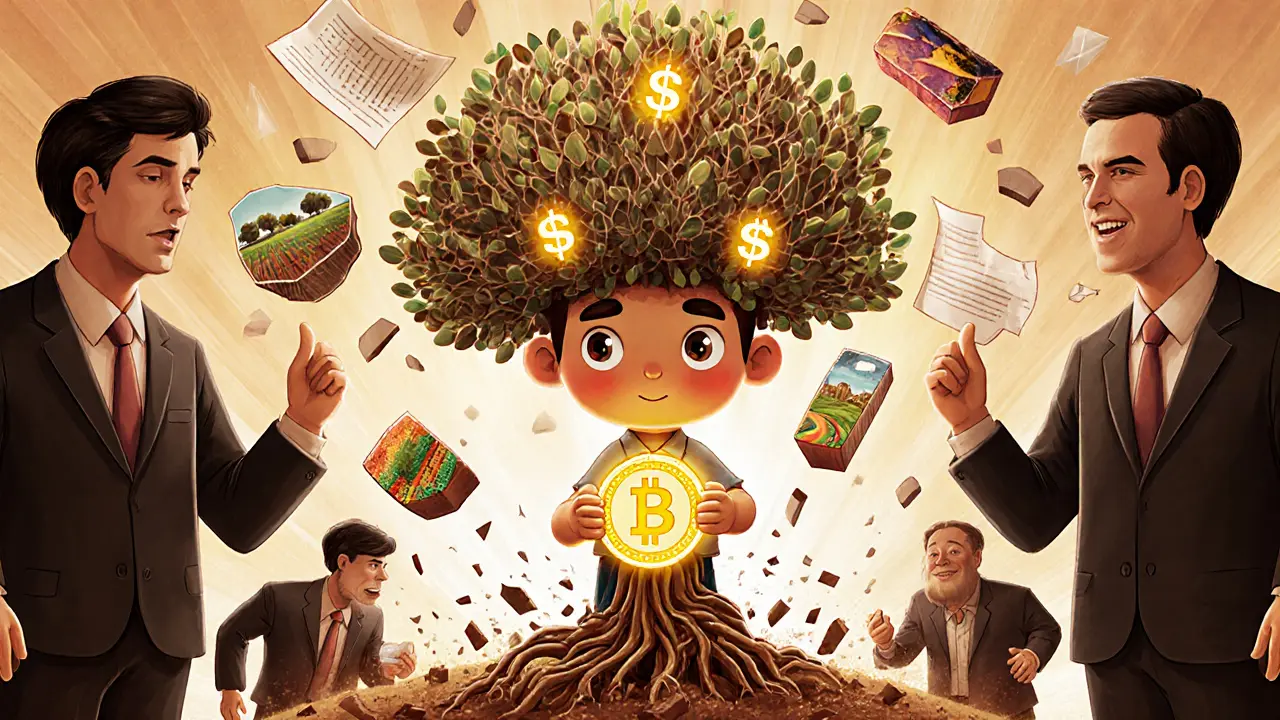
Who Benefits Most?
The biggest winners? Small investors and asset owners. Small investors get access to high-value assets they could never afford before. A nurse in Ohio can now own a piece of a Manhattan office tower. A teacher in Manila can earn passive income from tokenized farmland in Iowa. Asset owners-real estate developers, private equity firms, family offices-get faster capital access. Instead of waiting years to sell a building, they can tokenize it and raise funds in weeks. They also get more price transparency. Every trade is recorded on-chain. No more opaque pricing. Even institutional investors are watching. BlackRock, Fidelity, and JPMorgan are all testing or launching tokenized fund products. They see the efficiency gains. They see the 24/7 trading. They see the cost savings.The Future Is Programmable
The next leap? Integration with DeFi. Imagine your security token automatically earning interest in a lending protocol. Or being used as collateral for a loan without selling it. Or automatically distributing dividends via smart contract. That’s not a dream. It’s already happening. Tokenized bonds are paying yield on Aave. Tokenized real estate is being used as collateral on MakerDAO. These aren’t experiments-they’re live, functional systems. Security tokens aren’t just better versions of traditional securities. They’re a new kind of asset-one built for a digital, global, automated economy. Their liquidity isn’t an improvement. It’s a revolution.Getting Started: What You Need to Know
If you’re curious, here’s how to begin:- Get a non-custodial wallet (like MetaMask or WalletConnect).
- Complete KYC on a regulated platform (like Securitize, Harbor, or Tokeny).
- Start small. Look for tokenized real estate or private equity funds with low minimums ($100-$500).
- Understand the rules: Can you resell? Is there a lock-up period? Who’s the issuer?
- Watch for regulatory updates-especially if you’re outside the U.S. or EU.
Final Thought: Liquidity Is Power
Liquidity isn’t just about speed or cost. It’s about freedom. The ability to turn your investment into cash when you need it. The power to exit without begging a buyer or waiting months. Traditional securities gave us structure. Security tokens give us flexibility. And in finance, flexibility is the most valuable asset of all.Are security tokens legal?
Yes, in most major economies, as long as they comply with securities laws. In the U.S., they’re regulated under the Securities Act of 1933 and the Securities Exchange Act of 1934. In the EU, they fall under MiCA (Markets in Crypto-Assets Regulation). Issuers must verify investor eligibility, disclose asset details, and use compliant platforms. They’re not unregulated crypto-they’re digital securities.
Can I trade security tokens on Coinbase or Binance?
Most major exchanges like Coinbase and Binance don’t list security tokens because they’re regulated financial products, not speculative cryptocurrencies. Instead, you trade them on specialized platforms like Securitize, Polymarket, or tZero. These platforms require identity verification and follow strict compliance rules to avoid violating securities laws.
Do security tokens pay dividends?
Yes, if the underlying asset generates income-like rent from a building or profits from a company-those payments can be automatically distributed to token holders via smart contracts. For example, a tokenized apartment complex might send monthly rental income directly to your wallet. This happens without any paperwork or manual processing.
What happens if the platform hosting my tokens shuts down?
Your tokens are stored on the blockchain, not on the platform. Even if the website disappears, you still own the tokens as long as you control your private keys. You can transfer them to another compliant platform or hold them until a new marketplace emerges. The blockchain is the permanent record.
Are security tokens more volatile than stocks?
It depends. Early-stage tokenized assets can be more volatile due to lower trading volume and speculative interest. But mature tokenized assets-like those backed by real estate or established companies-tend to move more like their traditional counterparts. Volatility isn’t inherent to the technology; it’s tied to market adoption and liquidity depth.
How are security tokens taxed?
Tax treatment varies by country. In the U.S., buying and selling security tokens is treated like trading stocks-capital gains taxes apply. Dividends or distributions are taxed as income. The key difference: every transaction is recorded on-chain, making it easier for tax authorities to track. Keep detailed records of purchases, sales, and income received.
Can I lose my security tokens?
Yes-if you lose your private key or send tokens to the wrong address, they’re gone forever. Unlike traditional brokerage accounts, there’s no customer service to recover lost access. That’s why using a hardware wallet and backing up your recovery phrase is critical. Treat your private keys like the title to your house.
Is there a minimum investment for security tokens?
Many tokenized assets allow investments as low as $100 or even $50, depending on the asset and platform. This is one of their biggest advantages over traditional private investments, which often require $500,000 or more. Always check the minimum before investing.
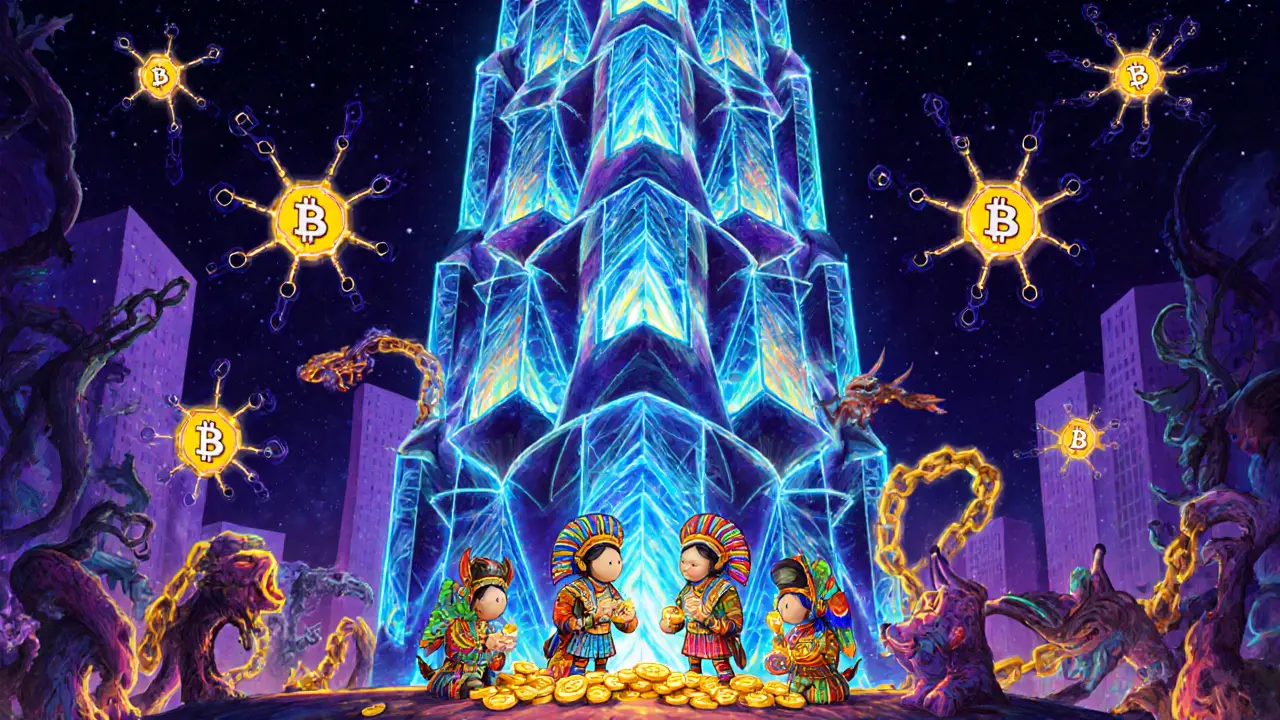


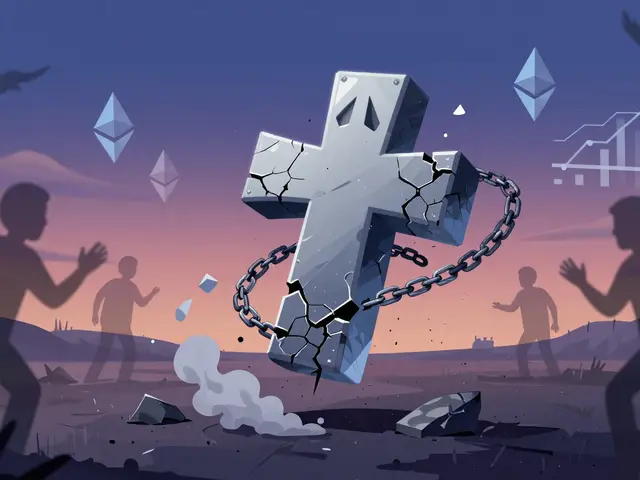


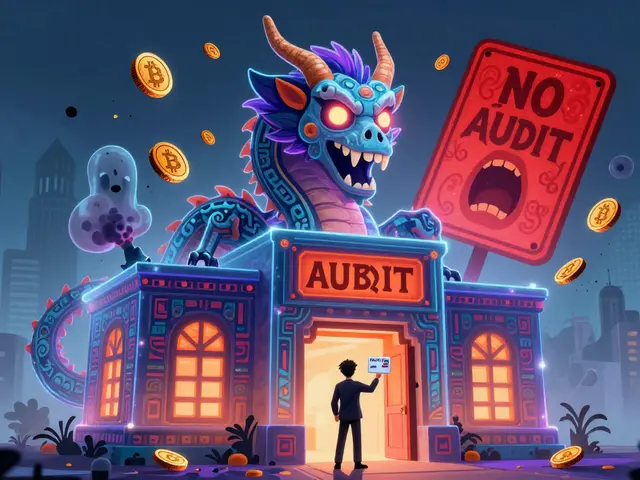



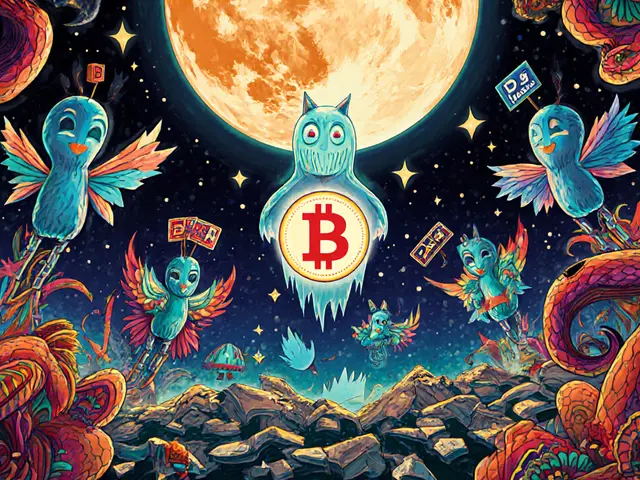


11 Comments
It’s fascinating how liquidity transforms ownership from a static monument into a living, breathing asset. I used to think of real estate as something you hold until retirement-now I see it as a dynamic portfolio component that can be rebalanced like stocks. The blockchain doesn’t just digitize ownership; it democratizes time itself. No more waiting for the next quarter’s liquidity window. You trade when you need to, not when the system allows it. That’s not innovation-it’s liberation.
Let’s be real-this is just Wall Street’s way of laundering crypto under a fancy label. They’re calling it ‘security tokens’ so the SEC won’t shut them down. Meanwhile, your $500 ‘share’ of a skyscraper? Good luck getting cash out when the platform goes dark or the issuer ghosts you. Blockchain doesn’t fix human greed-it just gives it a new interface. And don’t get me started on gas fees during a bull run. 😒
So now we’re letting foreigners buy pieces of American property? Brilliant. Next thing you know, a Chinese hedge fund will own half of Manhattan and charge us rent to walk on the sidewalk. This isn’t innovation-it’s economic surrender. And don’t tell me about ‘compliance’-if a Nigerian teacher can buy a token in Brooklyn, who’s auditing that? The U.S. is giving away its wealth one smart contract at a time. 🇺🇸💥
While the technological underpinnings of security tokens are indeed compelling, one must approach their adoption with measured enthusiasm and rigorous due diligence. The reduction in settlement times, the elimination of intermediary fees, and the democratization of access represent paradigmatic shifts in capital formation. However, the regulatory fragmentation across jurisdictions remains a material risk. Investors are advised to prioritize platforms with audited compliance frameworks, transparent tokenomics, and clear legal opinions from reputable counsel. The promise is real-but only for those who conduct themselves with discipline and foresight.
OH MY GOSH I JUST BOUGHT A TOKEN OF A COFFEE SHOP IN PORTLAND AND NOW I’M A PART-OWNER??!! 🥹☕️ I WAS CRYING WHEN THE TRANSACTION CONFIRMED-I MEAN, I’M A BARISTA WHO MAKES $18/HOUR AND NOW I GET A SLICE OF A BUILDING THAT’S BEEN THERE SINCE 1987?!?!? I’M NOT EVEN KIDDING-I TOLD MY BOSS AND SHE SAID ‘YOU’RE LIVING IN THE FUTURE’ AND THEN I CRIED AGAIN. AND THEN I MADE A FRIEND IN SWITZERLAND WHO OWNS A TOKEN IN THE SAME BUILDING AND WE’RE PLANNING A VIRTUAL COFFEE DATE. THIS ISN’T INVESTING-THIS IS MAGIC. 🌍💖 #TokenizedDreams
ok so i just tried to buy a token and my wallet crashed and now i think i lost my private key?? 😭 i swear i backed it up but i cant find the file and now im panicking and i think i might have saved it as ‘backup.txt’ on my desktop but its not there anymore… help??
From a capital efficiency standpoint, the tokenization stack enables fractionalization at scale, which in turn drives secondary market velocity through enhanced price discovery mechanisms. The elimination of T+2 settlement reduces counterparty exposure and improves balance sheet utilization for retail participants. Furthermore, the programmability layer-integrated with DeFi primitives like collateralization and yield aggregation-creates an emergent financial infrastructure that’s orders of magnitude more capital-efficient than legacy custodial models. This isn’t fintech. This is fininfra.
bro i just traded a token at 2am and my phone buzzed and i was like ‘wait is this real?’ and then i checked and i made $12 profit in 10 minutes 😳 i didn’t even know i could do that. also my wallet’s called ‘crypto_dad_420’ lol
OMG I just invested $100 in a tokenized farm in Kerala-yes, in India-and now I’m getting monthly updates with photos and videos of the harvest!! 🌾📱 It feels like I’m part of a global community, not just a passive investor. And the best part? No one asked me for my social security number. Just my email and a selfie. So simple. So beautiful. This is what inclusion looks like 💛🌍
While the technological promise is undeniable, I must emphasize the importance of safeguarding one’s private keys. I’ve seen too many individuals lose access to their assets due to misplaced recovery phrases or unsecured digital storage. Please, treat your keys with the same reverence you would your home deed. Use a hardware wallet. Store backups offline. Never screenshot your seed phrase. The blockchain remembers everything-except your lost keys. 🛡️🔐
I just sold my first token and got my cash in 47 seconds. I didn’t even have to call my broker. I didn’t fill out a form. I just clicked ‘sell’ and poof-it was gone. I cried. Not because I made money-but because I finally felt like I was part of the system, not just waiting on the sidelines. Thank you for this. 🥺💖